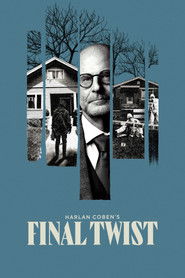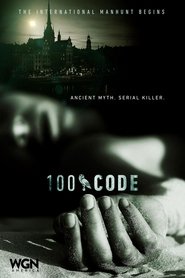Popular Crime TV Series - Page 199
-
When a Snail Falls in Love
2016
star 7.4Detective Ji Bai and new criminal profiler Xu Xu may seem like an awkward teacher-student pair at first glance, yet they are actually the best partners in the police force, solving one crime after another. Ji Bai slowly falls in love with Xu Xu, yet she is a girl who is as slow as a snail when it comes to love. Just as Xu Xu starts to reciprocate Ji Bai's feelings, the dormant "Angel's Killer" reappears. -
The Scene
2004
The Scene
2004
star 8.1NYU student Brian Sandro has a secret: he and his friends pirate hundreds of millions of dollars of illicit Hollywood movies in their spare time. They are revered, reviled, hunted and admired. No one knows who they are - at least, not as far as they know. -
James Patterson's Murder is Forever
2018
star 7.7A crime series featuring real stories packed with shocking twists and turns. -
Yellowthread Street
1990
Yellowthread Street
1990
star 6Yellowthread Street is a 1990 ITV police procedural developed by Ranald Graham. Adapted from the novels by William Leonard Marshall, the thirteen episode series revolves around the Triad-busting cases of a group of Royal Hong Kong Police Force detectives, based in the colony’s Yellowthread precinct. Despite being a critical and ratings hit, Yellowthread Street never caught on, perhaps the result of the exotic setting and expensive production (it was shot on 35mm). It also seemed caught between two eras: conceived in the 1980s and produced at the turn of that decade, its philosophy and look seemed a little dated compared to other modern shows of the genre (i.e. The Bill). -
Harlan Coben's Final Twist
2026
star 2.7Brings the world’s best-selling mystery author into the true-crime television genre for the first time. -
Aranyak
2021
Aranyak
2021
star 7.1After a foreign teenage tourist goes missing in a misty village, Kasturi, a frazzled local cop, is forced to team up with her city-bred successor, Angad, on a high-profile case that unearths skeletons and resurrects a long-forgotten legend of a savage serial killer in the woods. -
Blind Tracks
2025
Blind Tracks
2025
star 2.7A heavy snowstorm, a train collides with an avalanche forcing passengers to shelter in an isolated mountain hotel. A suspended police officer finds herself investigating mysterious murders occurring there. -
Fabio Montale
2001
Fabio Montale
2001
star 7Fabio Montale, a crime squad superintendent who knows Marseille like the back of his hand. The city crawls with gangs, corrupt policemen, shady politicians and the mafia – all standing in the way of justice. -
Duel
2017
Duel
2017
star 6.4Jang Deuk-Cheon is the chief of a crime squad. At home, he is kind and friendly father to his daughter. He meets a human clone and gets involved in a shocking case. A battle takes place between human clones. -
The Thief and The Book
2010
star 8.7The story of twin brothers who can not be any different. The first is a simple teacher who lives by his integrity, while the other is a swindler who is constantly getting himself in trouble, but his wit and his strong personality become his saving grace as they secure him a way out of trouble. -
La Regina di Palermo
2017
-
MosGaz. Delo N4: Shakal
2016
star 7.7The beginning of the 70s. Major Cherkasov and his team are investigating a new case. This time we are talking about robberies. And this is the sphere of management for combating theft of socialist property (UBKhSS). During the robberies, the bandits mercilessly kill witnesses. The robberies are well organized and well thought out. And someone very knowledgeable prepares them. The leadership decides to unite the efforts of two departments of the Moscow militia against the "outlaws": the Ministry of Internal Affairs and the UBKHS. Together they are preparing an operation to arrest the gang. -
100 Code
2015
100 Code
2015
star 6.6New York, USA. Stockholm, Sweden. Over the past twelve months young, blonde, blue-eyed women have been found dead in a meadow where Asphodel flowers grow. New York Detective Tommy Conley gets a special dispensation from the NYPD to go observe and act as an adviser to the Stockholm Police Department in order to help solve these crimes. -
Young Dr. Kildare
1971
Young Dr. Kildare
1971
This half-hour series picks up the life of a long-familiar young doctor. Mark Jenkins is Dr. Kildare this time around, and Gary Merrill is his mentor, dr. Gillespie. -
Parot
2021
Parot
2021
star 6.4Many prisoners convicted of rape, murder and terrorism are released before serving their full sentences. Hours later, one of them is killed. Detectives Mora and Nieto take on the case. -
Ravages
2025
Ravages
2025
-
The Spider
2000
The Spider
2000
star 5.9A reporter is drawn into the dark side of post-war Copenhagen as he attempts to uncover a crime syndicate on an unprecedented level. -
Death Runs After Them
1967
Engineer Morrison returns to England after a long stay in America. Terrible news awaits him: his sister Alice is said to have committed suicide.
 Netflix
Netflix
 Amazon Prime Video
Amazon Prime Video
 Apple iTunes
Apple iTunes
 Apple TV Plus
Apple TV Plus
 Disney Plus
Disney Plus
 Google Play Movies
Google Play Movies
 Paramount Plus
Paramount Plus
 Hulu
Hulu
 HBO Max
HBO Max
 YouTube
YouTube
 fuboTV
fuboTV
 Peacock
Peacock
 Peacock Premium
Peacock Premium
 Amazon Video
Amazon Video
 The Roku Channel
The Roku Channel
 AMC+
AMC+
 Kocowa
Kocowa
 Hoopla
Hoopla
 The CW
The CW
 Vudu
Vudu
 Starz
Starz
 Showtime
Showtime
 PBS
PBS
 Pantaflix
Pantaflix
 FXNow
FXNow
 Tubi TV
Tubi TV
 Kanopy
Kanopy
 Comedy Central
Comedy Central
 Crunchyroll
Crunchyroll
 Microsoft Store
Microsoft Store
 Redbox
Redbox
 Sun Nxt
Sun Nxt
 ABC
ABC
 DIRECTV
DIRECTV
 Crackle
Crackle
 Fandor
Fandor
 Plex
Plex



















